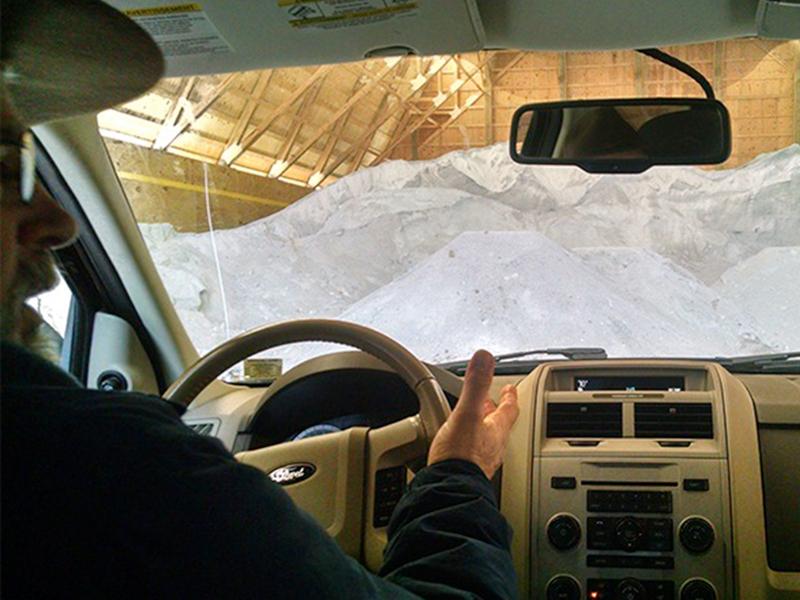An average of 200 local workers have been excavating salt six days a week since September 2014 to fulfill the contracts Cargill Deicing Technology negotiated with New York State over the summer.
“Bidding demand was strong in anticipation of a bad winter and because little was left over from the previous winter,” Mark Klein, a company spokesman, said. “We have been working extra hours since September to match supply with demand.”
New York State ordered more than 1.1 million tons of road salt from Cargill last summer, in preparation for this year—an 80-percent increase over last season. The contracts are worth roughly $67 million, according to the state, up from a little less than $41 million the year prior. The price of salt has risen nationwide, in part, due to greater demand and stockpile shortages after last year’s snowfall, according to Heather Groll, communications director at the Office of General Services, which handles the contracts.
Cargill supplies both the town and city of Ithaca. The latter might have to cut overtime hours for projects like summer asphalt repair, Ray Benjamin, assistant superintendent for the city’s public works department, said, based on the amount of money being directed to road salt.
“Each of the past two years we’ve probably had a 25 to 30 percent increase in demand for salt,” Sean Wilcynski, manager of the Lansing mine, said. “So, really over a couple of years ago, like 50 percent up.”
As of March 2, it snowed in Ithaca on 46 of 61 days since the start of 2015, according to data from the Northeast Regional Climate Center. The town of Ithaca called its snowplow drivers, who lay road salt, in to work overtime hours on 30 of those days—straining the supply.
“We thought the extra 40 percent we ordered would have gotten us through,” Jim Weber, the town’s Highway Superintendent, said. “But, nobody would have expected Mother Nature to present what she did.”
On average, the town has historically used about 2,200 tons per year. Thanks, in part, to extra money from the town board’s reserve fund, Weber was able to purchase 3,200 tons for the 2014-2015 winter season. At the end of February, only about 300 tons remained, and it is going fast. On a snowy weekend, the town might use 75 tons of Cargill’s salt per day, Weber said.
“They’re trying to produce nonstop to keep up with the demand,” Weber said. “Their mine is 2,700 feet down. They have a lot of costs to extract that material and get it on to the service. Are they making a profit? Probably. But, that’s what businesses are supposed to do.”
The demand has been tough for all the salt suppliers in New York State, Wilcynski said. But, the strain of this season is preferable to mild winters. Cargill was forced to lay off 50 workers in 2012 due to weather that yielded less than half of the company’s annual sales.
“Even we’re tired,” he said. “Although it’s much better than laying people off, there’s only so long you can sustain an extended schedule with people getting tired. But, we’ll take the extended schedule over the layoffs. That’s for sure.”













